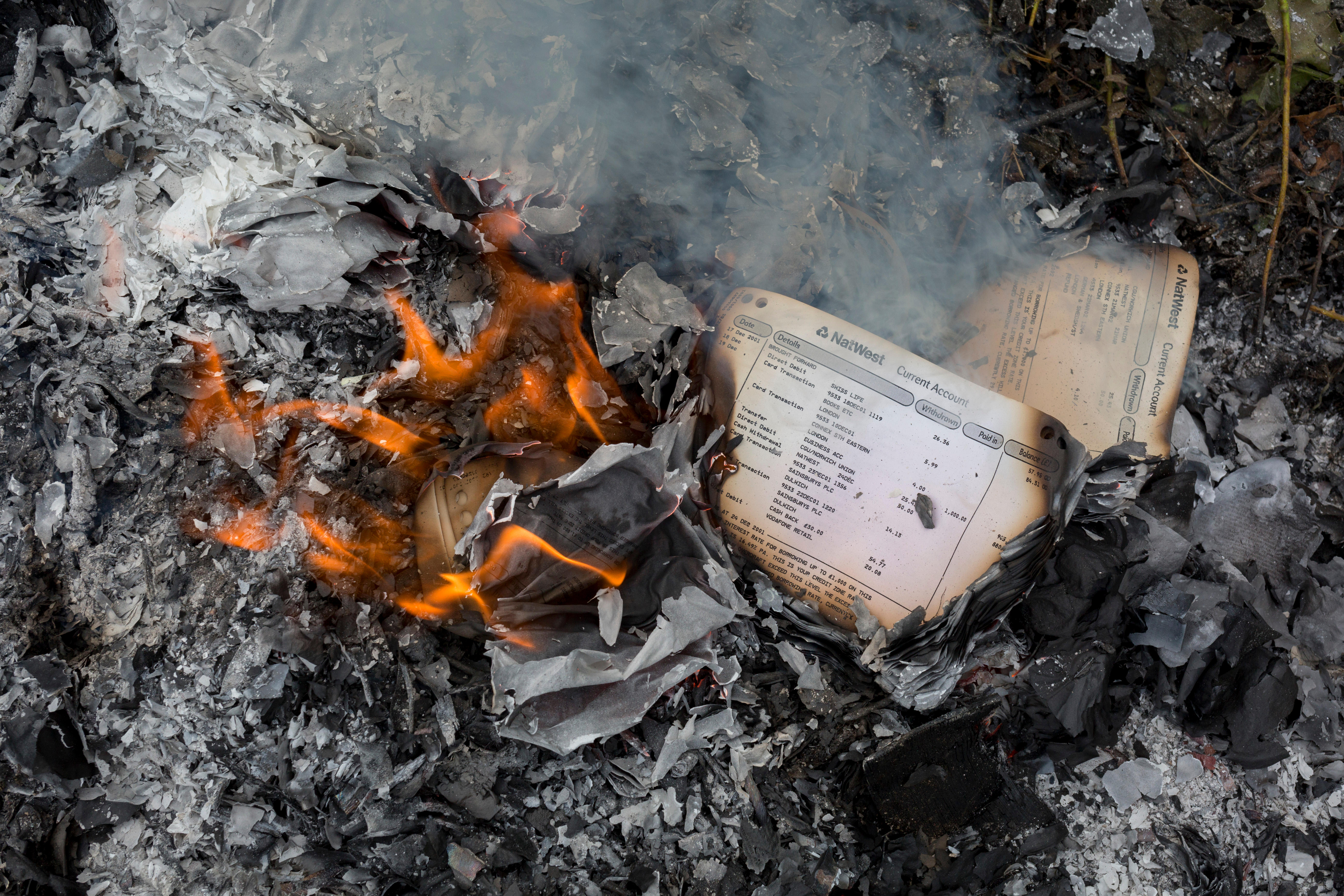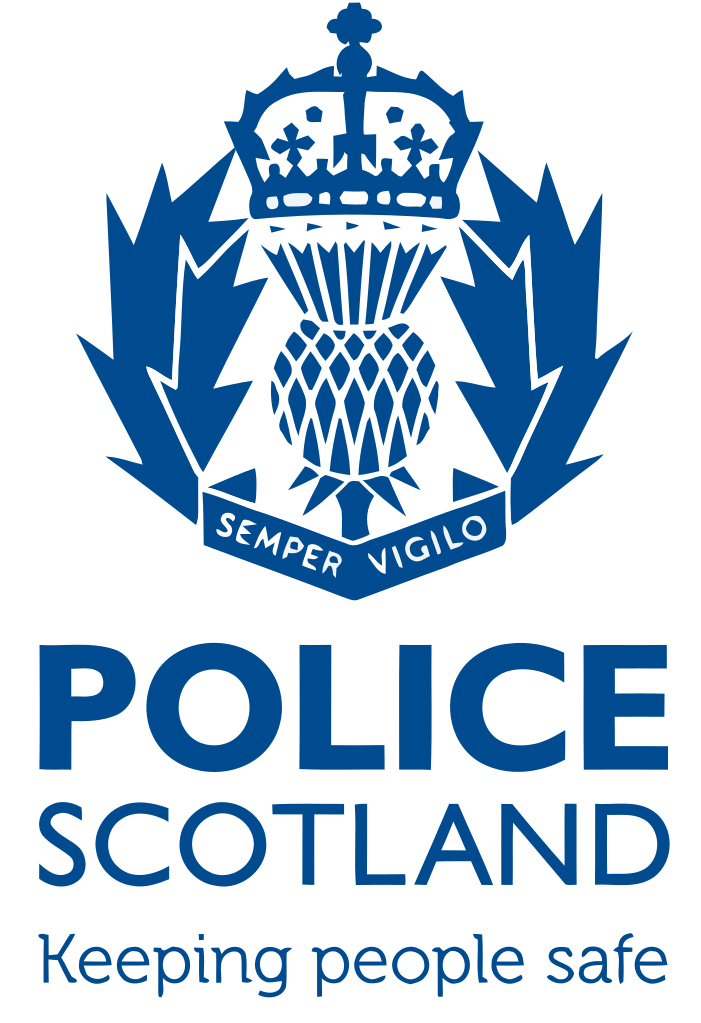
APolice Scotland inquiry into the torching of files found at a chaotic undercover unit may have covered up a cover-up, according to an independent review.
The Metropolitan Police had been asked to investigate how the Scottish force had investigated claims that senior officers ordered piles of secret and sensitive documents to be torched in a garden incinerator days after a unit managing undercover operations against organised crime had been exposed as chaotic and potentially criminal.
We told in February how officers at the now-defunct Scottish Crime and Drugs Enforcement Agency, once billed as Scotland’s FBI, were ordered to buy the incinerator and petrol and burn the files in the carpark of their headquarters next to Glasgow Airport.
If it looks like a cover-up, smells like a cover-up, if even the Met can’t deny it’s a cover-up, then trust me, it’s a cover-up
– one source’s verdict yesterday
The destruction of documents – including bank statements, passports and credit card bills linked to undercover officers’ secret lives – were destroyed within days of being found at an out-of-town unit exposed as a shambles by a whistleblower.
The Police Scotland review ordered in February, named Operation Towering, concluded the papers had not been burned in an attempt to cover-up the chaos at the Special Operations Unit (SOU)but the Met’s review of that review is far less certain.
The London force concluded: “Having considered the rationale behind Operation Towering’s assessment and, in spite of the anomalies discovered, the Metropolitan Police Service cannot confidently conclude the same assumption.
“The timely manner of the incineration, its closeness in time to a professional standards investigation into the SOU and the lack of any audit or record of destruction, throws sufficient doubt that this can be the only conclusion.”
Police Scotland has consistently denied there was any evidence of a cover-up but yesterday one source questioned those repeated denials.
The source said: “The language in this report is absolutely torturous. It reads like it has been put through Google Translate and back again. It is hard to follow and almost impossible to understand.
“But, when you strip everything away, all the insistence that this is a legacy issue and everything is all right now, you are left with an absolute mess.
“If you squint at this report long enough, you can finally see that, yes, there was possible criminality; yes, officers were ordered to destroy files and documents in direct contravention of regulations; and, no, it is not clear if the Crown Office knew that potential evidence of criminality had been burned in a carpark before deciding no crime had been committed.
“It looks like a cover-up, it smells like a cover-up and, if even the Met cannot deny it was a cover-up, then you can be assured it was a cover-up.”
The unprecedented incineration of secret and sensitive police files emerged during a £1 million civil action when the officer who raised the alarm successfully sued Police Scotland for unfairly freezing her out of her job and damaging her mental health. Police Scotland is appealing.
The whistleblower, known as Mrs K in court, said she discovered disarray at the unit just before she was due to take charge. The officer managing the unit later did not return to duty before resigning because of ill health.
The Met says it found no evidence of criminal activity at the unit but admits more than £10,000 cannot be accounted for because of the confused financial records. It also said the officer in charge had used SCDEA funds to improperly extend attendance at a conference so he could play golf and fund a trip to Northern Ireland for “false reasons”. The Met concluded, however, that both Police Scotland’s review of the events at the SCDEA and current management of covert operations were “robust”.
In a report to the Scottish Police Authority on Wednesday, Chief Constable Iain Livingstone says the Met has backed every aspect of Police Scotland’s handling of the claim and will insist the events at the SCDEA are not relevant to Police Scotland, where new procedures are in place, adding: “No new reputational implications have been identified as a result of this investigation.”
However, Scottish Lib Dems justice spokesman Liam McArthur, a member of parliament’s policing committee, said the burning of documents in carpark was like something from the 1970s-set police drama Life on Mars and still had to be properly explained.
He said: “The Met review calls into question Police Scotland’s version of events.
“It suggests the documents burned in a carpark may have been more important than previously claimed. While the review is confident this won’t happen again, the full facts are still murky.
“This will require serious and substantive debate at the forthcoming board meeting and a commitment to boost transparency going forward. People will be watching with interest when this is raised with the SPA on Wednesday.”
Scottish Greens justice spokesman John Finnie, himself a former police officer, said yesterday: “I have not yet had sight of the Met report – but any conclusion which suggested police burning of documents was anything other than sinister would be hard to understand.
“The public can be assured there will be appropriate parliamentary scrutiny of this issue.”
Mrs K revealed the incineration of documents while giving evidence in her civil case when she claimed she had been made a scapegoat by senior officers at the SCDEA and forced out of her job.
In 2011, she found passports, cash, unopened mail, bank cards and chaotic financial records at the unit which, senior officers feared, risked covert operations and the safety of undercover officers.
In February, we revealed how officers were then ordered to buy a garden incinerator and petrol and burn boxes of files and documents behind their base at Osprey House, in Paisley, Renfrewshire, before a report into potential fraud was sent to prosecutors.
But MSPs demanded an investigation into the collapse of the SOU and Police Scotland asked the Metropolitan Police to “peer review” its own internal inquiry.
A summary of the Met’s findings was published on Friday ahead of a meeting of police watchdog, the Scottish Police Authority, in Aberdeen on Wednesday at which the report will be discussed.
The SCDEA director at the time, Gordon Meldrum, has now retired while the officers second and third in command – Johnny Gwynne, who became Deputy Chief Constable of Police Scotland, and Stephen Whitelock, who was lead investigator at HM Inspectorate of Constabulary – announced their retirement as the court judgment, backing the whistleblower’s case, was published in January.
Police Scotland vehemently denied any suggestion of a cover-up and said that the timing of officers’ retiral was coincidental and entirely unconnected to the judgment.
Police Scotland said possible new lines of inquiry had emerged during the Met review but had been checked and had not provided any new information.
A spokesman said: “The Metropolitan Police Service concluded both the chief constable and the Scottish Police Authority can rightly be assured that all matters from 2011 are indeed legacy based.
“A strong governance operating model is in place and provides robust financial management of covert policing throughout Police Scotland.”
The Crown Office said it had nothing to add to its previous decision that no criminality had been found. It has previously refused to say if prosecutors knew potential evidence had been destroyed before making their decision.
Liam Kerr, Scottish Conservative shadow justice secretary, said: “The Met report suggests a catalogue of anomalies and questionable behaviour that must be explained.
“The fact the Met’s review appears to disagree with Operation Towering makes it even more important that further investigation is made.
“All police must operate within the rules so the SPA should look into this matter urgently to ensure correct procedures have been followed.”

Police Scotland complained to The Sunday Post about our coverage of the cover-up at the SCDEA in February. In a finger-wagging three-page letter, the force said the retiral of Deputy Chief Constable Johnny Gwynne was unconnected to the court judgment, announced the same week, detailing the response to the undercover scandal at the SCDEA where he had been No 2. The force also insisted there was no evidence of a cover-up and told us:
These headlines and the article are inaccurate, misleading and distorted. At no point do they make clear this is an interpretation of… evidence, rather than agreed upon or found fact.
We seek the immediate removal of the story from your website and all search engine results. We further seek publication of an online and printed correction and apology at the earliest opportunity and with due prominence for a front page article.
Police Scotland welcomes fair and robust scrutiny, including fair and accurate reporting on court proceedings. However the failure to properly describe evidence in a court case and the leap to describing events as a cover-up on no fewer than six occasions over the articles and their headlines without due regard for evidence referencing investigations and outcomes rather than a cover-up is inaccurate and misleading
Yesterday when asked about the Met’s refusal to deny a cover-up took place at the SCDEA, Police Scotland said:
The matter will be discussed at the SPA meeting on Wednesday
After reviewing Scots force’s conclusion in internal review, the Met concluded:
Having considered the rationale behind Operation Towering’s assessment, and in spite of the anomalies discovered, the Metropolitan Police Service cannot confidently conclude the same assumption.
The timely manner of the incineration, its closeness in time to a professional standards investigation into the SOU and the lack of any audit or record of destruction, throws sufficient doubt that this can be the only conclusion
The burning questions
We suggested a number of questions posed by the emerging scandal eight months ago.
After an internal Police Scotland review and an external review of the review,
it is unclear how many, if any, have been answered:
Which SCDEA officers were signatories to the bank accounts being run by the Special Operations Unit?
Which SCDEA officers signed off the accounts of the unit?
Which officer ordered the incineration of the sensitive material found at the unit when its finances were exposed as chaotic and possibly criminal, and which officers knew about it?
Was the material covered by the official Protective Marking Scheme?
Was burning it contrary to standard operating procedures?
Did officers charged with burning it raise concern at the time that some of it was classified as sensitive and secret?
Were they told to burn it anyway?
Was this done before the possibility of fraud or criminality at the unit was reported to the Procurator Fiscal?
Were the five officers tasked with burning the material paid up to six hours overtime?
After buying a garden incinerator at B&Q in Paisley, and matches and petrol at a BP petrol station at Glasgow Airport, were the officers reimbursed through expenses?
Both Strathclyde and Grampian forces voiced serious concerns about how the SCDEA investigated the collapse of the unit at the time so was that internal inquiry fair-minded, rigorous and transparent?
Should the current review team ignore it and start again by speaking to officers and former officers directly involved?

Enjoy the convenience of having The Sunday Post delivered as a digital ePaper straight to your smartphone, tablet or computer.
Subscribe for only £5.49 a month and enjoy all the benefits of the printed paper as a digital replica.
Subscribe